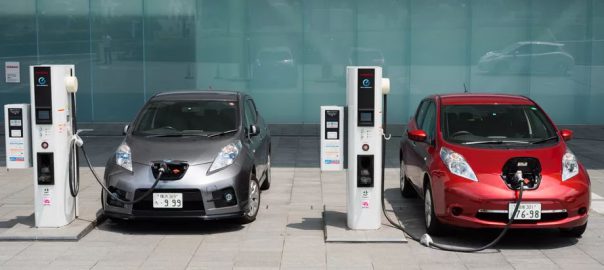Unpredictably rapid growth happens pretty predictably
Just about every analyst agrees that the electric vehicle market is poised for rapid growth. But how rapid?
It’s not an idle question. The rate of EV growth will have huge implications for oil markets, auto markets, and electric utilities. Yet it is maddeningly difficult to predict the future; forecasts for the EV market are all over the place.
I don’t think the wide range of projections means that we’re blind here, though — I think we can make educated guesses. Specifically, I think history justifies optimism, the belief that the high-end projections (like those in a new study I discuss below) are closer to the truth.
Let’s walk through it.
EVs could do serious damage to oil — or not much
Transportation accounts for a huge portion of US carbon emissions. As recently as 2014, it was behind the electricity sector — 26 percent of US emissions to electricity’s 30 percent. But as Vox has reported, and the US Energy Information Administration (EIA) just confirmed, as of 2016, they have crossed paths. “Electric power sector CO2 emissions,” EIA writes, “are now regularly below transportation sector CO2 emissions for the first time since the late 1970s.”
This is happening because power sector “carbon intensity” — carbon emissions per unit of energy produced — is falling, as coal is replaced with natural gas, renewables, and efficiency.
The only realistic prospect for reducing transportation sector emissions rapidly and substantially is electrification. How much market share EVs take from oil (gasoline is by far the most common use for oil in the US) will matter a great deal.

However, as Rice University’s Dan Cohan explains in The Hill, EV forecasts are all over the map.
The EIA’s “Annual Energy Outlook 2017” is much more bullish about EVs than in previous years — its forecast for the EV market is “nearly double its forecast from last year, and nearly 10 times its forecast from 2014.” It no longer thinks hybrids or plug-in hybrids will play a major role. It believes EVs are ready.
Read more: Vox
